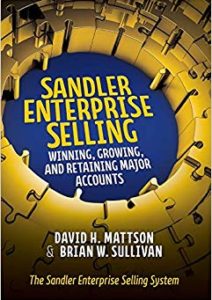One of my favorite quotes comes from the famous religious leader, Buddha – “What consumes your mind controls your life”. While it’s universally applicable, I’d like to focus on how it relates to selling.
First, some context regarding the well-known placebo effect. Placebos are used by pharmaceutical firms in clinical trials to gauge the effectiveness of new drug treatments such as pain medications. Recently, one group of migraine sufferers was given an actual drug while another suffering group received a sugar tablet. Neither group was aware of which they received while both hoped for relief. Interestingly, more than 50% of those receiving the placebo reported relief. How? By believing that the placebo would help. While we can credit Buddha’s wisdom, there’s also a dark side to consider.
In 1966, Japan’s birth rate Japan experienced a dramatic 25% drop from 1965 but rebounded to normal levels in 1967. What happened to cause such a significant plunge? What if I told you that it was fully expected as was the return to normalcy? You see, 1966 was the Year of the Fire Horse, the 43rd combination of the Chinese Zodiac cycle, occurring every 60 years. And culturally, the Japanese are a superstitious people. Many believed that female babies born in the year of the Fire Horse were destined for a life of cruel fate and misfortune. As a result, superstitious parents avoided having babies in 1966, convinced that daughters born would be extremely disadvantaged. Taking it a step further, statistics showed that Japanese born in the Year of the Fire Horse actually died earlier than those born in other years – up to five years earlier! Such is the manifestation of negative beliefs and their very real effect on people. This darker side of belief is referred to as the nocebo effect, where the power of negative expectations, as with the positives of placebos, produce actual negative results.
Interesting stuff, right? But what does it mean in terms of selling? Why does it matter? Because of Buddha’s quote – “What consumes your mind controls your life”. I’ll paraphrase – “What consumes your mind controls your ability to win, grow and keep clients”.
To drill down to selling, let’s do a short exercise. First, think of something positive that enables you to be effective in your organization, your territory or your market. Got it? Good. What are your positive beliefs about why it affects you in such a productive way? That was nice, wasn’t it? Good feelings, for sure. Now, think of something negative that burdens you, your organization, your territory or your market. And ask yourself what your negative beliefs are about it and why it limits your effectiveness. Right – not such nice feelings with this one.
Of course, some of the positives or negatives you identified may be very concrete – your facts, your reality. But in most cases, as with placebos and nocebos, the resulting positive and negative beliefs are just powerful thoughts that dictate attitudes and behaviors. And as such, they also dictate results, just like the Fire Horse.
So, given their immense power, what can you do to increase the likelihood that your selling beliefs are positive? There’s certainly a lot to be said for psychology’s guidance about using positive self-talk to disarm your limiting beliefs. For this discussion, though, we’ll focus on generating positive beliefs, attitudes and behaviors through building confidence. And we’ll examine some practical methods, tools and processes that help confident salespeople build the courage to be assured in their beliefs.
First, confident salespeople are comfortable saying “no”. They build and utilize streamlined Go/No-Go frameworks to maximize the likelihood that the deals they pursue are the deals they’re most likely to win. Confident salespeople plan. Whether prior to a call, meeting or presentation, they use templates religiously. If a transaction is worth doing, it’s worth planning for. Confident salespeople ask questions – lots of them. They don’t pitch but they inquire and listen intently. Knowledge of course, breeds confidence. But you must seek it to gain it. Confident salespeople are mindful. Preconceived notions, biases and head trash are yokes around salespeople’s necks. Especially with prospects and clients, confident reps live in the moment of every interaction to build agility regarding the path forward. Confident salespeople are accountable. They own their failures and learn from them. The use post-mortems to gain lessons learned from losses to insure increased effectiveness on future deals. The Go/No-Go template I mentioned earlier, by the way, flips to become a valuable postmortem framework after losses. And, in the end, confident salespeople take actions. They are motivated by and characterized by forward motion, never standing still.
Today, with the prevalence of team selling, the beliefs that affect individuals can also be highly contagious in groups. This raises the belief stakes, increasing the need to visualize positive situations by building confidence via tools and processes like those I mention.
The power of beliefs is indisputable. But so is your ability to put it to work for you. Utilize tools and processes to build your confidence to increase your likelihood of success in selling. Don’t try to fight the Fire Horse without ammunition!











Comments (5)
This is an awesome article i belove so much
By releasing the right mentality it can greatly convince customer and make the best sales. Great article
i love this article. Thought me alot
i love this
Such an insight. The impact our mind can have on our efficiency and output can be overlooked at times. Surely positivity and confidence can go a long way if an effort was put.